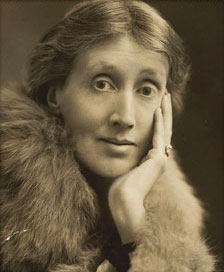Again and again we share Masha’s feelings in Family Happiness. One shuts one’s eyes to escape the feeling of pleasure and fear. Often it is pleasure that is uppermost. In this very story there are two descriptions, one of a girl walking in a garden at night with her lover, one of a newly married couple prancing down their drawing-room, which so convey the feeling of intense happiness that we shut the book to feel it better. But always there is an element of fear which makes us, like Masha, wish to escape from the gaze which Tolstoi fixes on us.
Is it the sense, which in real life might harass us, that such happiness as he describes is too intense to last, that we are on the edge of disaster? Or is it not that the very intensity of our pleasure is somehow questionable and forces us to ask, with Pozdnyshev in the Kreutzer Sonata, “But why live?” Life dominates Tolstoi as the soul dominates Dostoevsky.
There is always at the centre of all the brilliant and flashing petals of the flower this scorpion, “Why live?” There is always at the centre of the book some Olenin, or Pierre, or Levin who gathers into himself all experience, turns the world round between his fingers, and never ceases to ask, even as he enjoys it, what is the meaning of it, and what should be our aims. It is not the priest who shatters our desires most effectively; it is the man who has known them, and loved them himself. When he derides them, the world indeed turns to dust and ashes beneath our feet. Thus fear mingles with our pleasure, and of the three great Russian writers, it is Tolstoi who most enthralls us and most repels.
But the mind takes its bias from the place of its birth, and no doubt, when it strikes upon a literature so alien as the Russian, flies off at a tangent far from the truth.
The End
